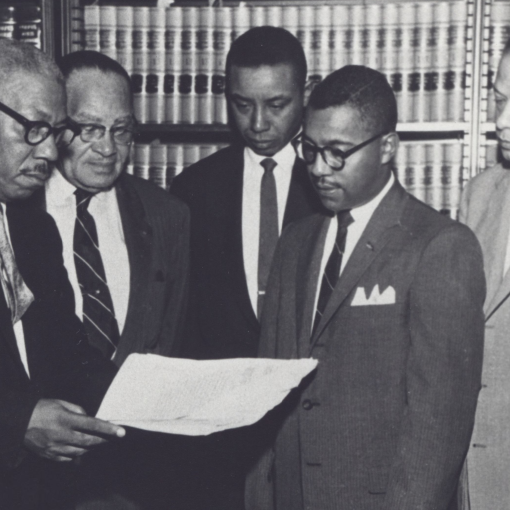Advocacy & Activism in the LGBTQIA Community
There is no separation between African American heritage and LGBTQ advocacy in Durham.
This story is a part of our African American Heritage Guide Project, a printed guide and collection of stories about Durham's Black history, culture, community and entrepreneurship created by Black writers, poets and artists. Find more stories and information about the guide.
Various political, economic, cultural and social influences converged to make Durham a place where LGBTQ advocacy flourishes. And no one exemplifies that more than Pauli Murray, one of our patron saints of intersectional politics. Born in Baltimore but moving to Durham's Carroll Street in the West End at the age of 3 in 1913, Murray went on to fight for racial and gender justice their entire life. Murray did this even as they experienced discrimination and the inability to live fully in their truth; they laid the groundwork for Brown v. Board of Education and served as a founder of the National Organization of Women. Murray's work transcended the secular and was the first Black AFAB (assigned female at birth) person ordained to be an Episcopal priest and preached their first sermon at Chapel of the Cross on Franklin Street in Chapel Hill.

See the Pauli Murray mural at Foster Street in Downtown Durham. Photo: Discover Durham
The Pauli Murray Center for History and Social Justice stands today as a testament to Murray's work. It is a historic landmark anchored by Pauli Murray's childhood home, built by her grandparents in 1898. The Center provides a place to operate and continue Murray's legacy. The exhibits, community dialogues, visual and performing arts, activism and workshops at the Center connect history to contemporary human rights issues.
The legacy of advocacy continued with organizers like Mandy Carter, a self-proclaimed Black lesbian activist and a co-founder of Southerners on New Ground (SONG) in 1993. Mandy is a powerhouse known for her commitment to non-violence and LGBTQ activism, centering the South for over five decades. SONG builds and organizes local grassroots groups to advocate for left-of-center politics, primarily around LGBTQ- and racial-interest issues, but also related to criminal justice reform and expanding immigration. Organizing work such as the work done by Mandy and others paved the way for North Carolina Central University to be the second historically Black university in the country to have an LGBT center in 2014.
And you can't talk about this work without discussing the LGBTQ+ Center of Durham. Founded in 2015 by Helena Cragg, it continues to provide necessary services for the broader queer community. Cragg herself later established Soul Sanctuary, an event space and farm collective offering accessible housing, food security and supportive spaces for LGBTQIA Elders. Various spaces are available for rent, and the property hosts public events, including Saturday morning Farmers’ Markets.
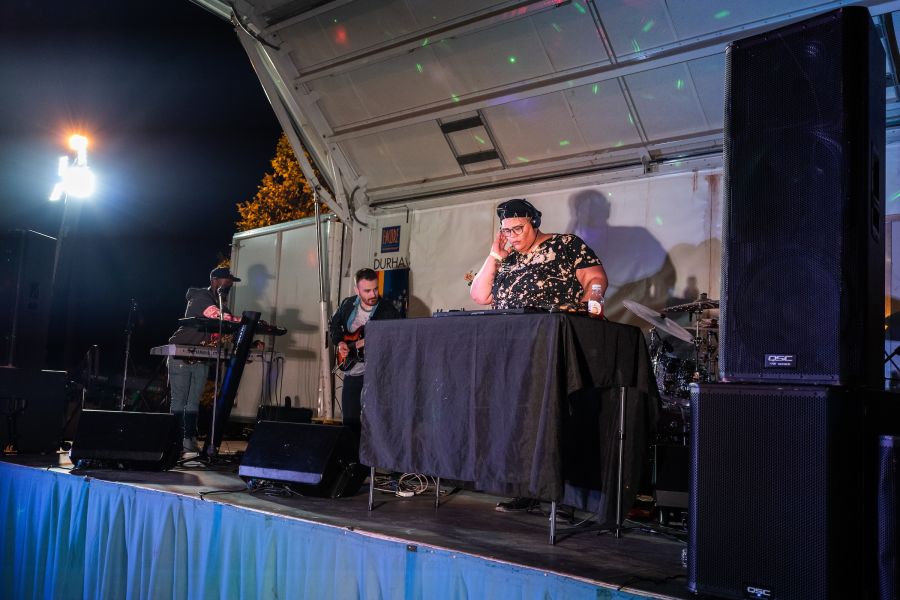
A set by DJ Gemynii is always a party. Photo: Discover Durham
The fight for LGBTQIA rights isn't relegated to institutions and organizations; it’s is also going down on dance floors, bookstores and big and small screens. Acclaimed Durham artist, curator and DJ, Gemynii created The Conjure, a safer space dance party celebrating Black queerness and femmes. Naomi Dix, a dynamic and versatile drag artist, has established Club Era, Durham's own gay, queer, trans (and beyond) nightclub and bar. The House of Coxx and its founder, Drag Mother Vivica C. Coxx, have been pioneering forces in celebrating the art of drag in Durham for many years. Durham's premier social-justice-minded Drag Family creates and holds spaces for drag performers to thrive, new connections to be made, and critical conversations to be held.
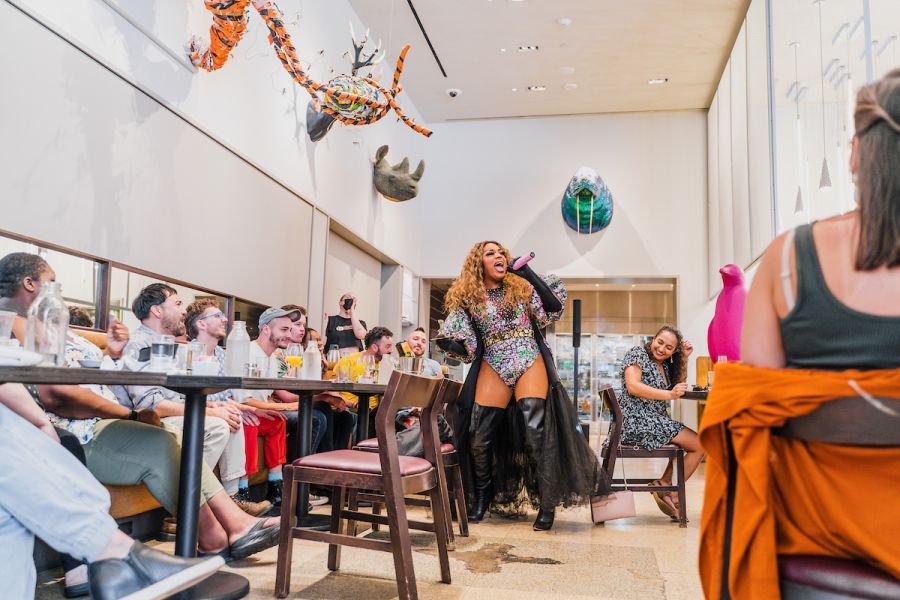
Head to the Counting House to see House of Coxx Drag Brunch. Photo: Discover Durham
Congress Social Bar exemplifies diasporic Black queer and trans business ownership. Comfrey Films, founded by Joie Lou Shakur, uplifts Black trans, gender non-conforming and intersex (TGNCI*) storytellers and independent filmmakers. Comfrey Films delivers training, guides film projects and holds space based on a three-pronged approach of land-based strategy, embodiment and bodily wisdom, and the power of individual storytelling as a landscape for growth and filmmaking.
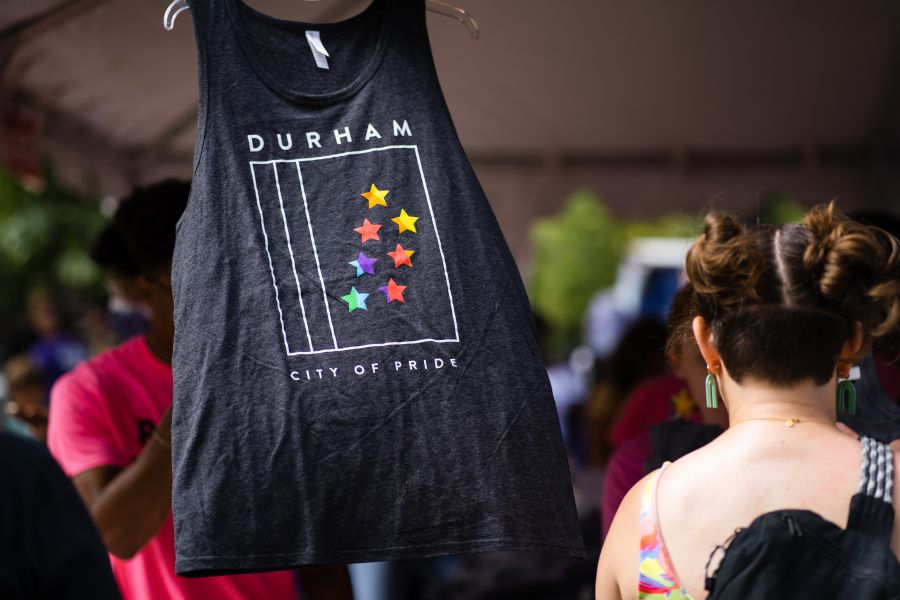
From its businesses to its artists, Durham is full of Pride. Photo: Discover Durham
But even with the recorded history of LGBTQ advocacy, that does not explore the intimate moments of resistance that happened here, from barbershops and beauty salons to backyard parties and bedrooms. If the past is any indication, Durham will continue to be a place for LGBTQ people to flourish.
more stories from the African American Heritage Guide
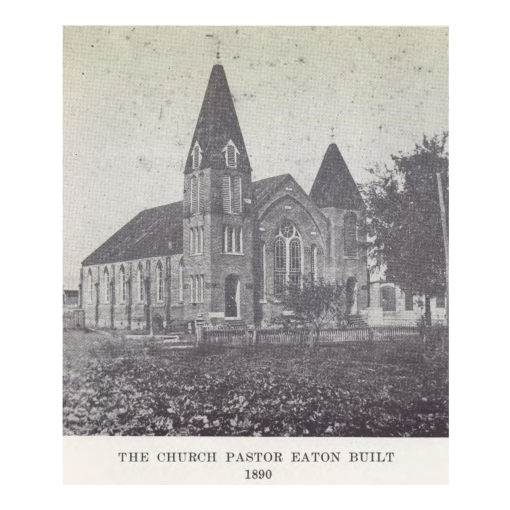
Durham: A Heritage of Faith, Down Through the Years Durham would not be what it is today if not for the influence of its Black churches and religious leaders. Learn More
